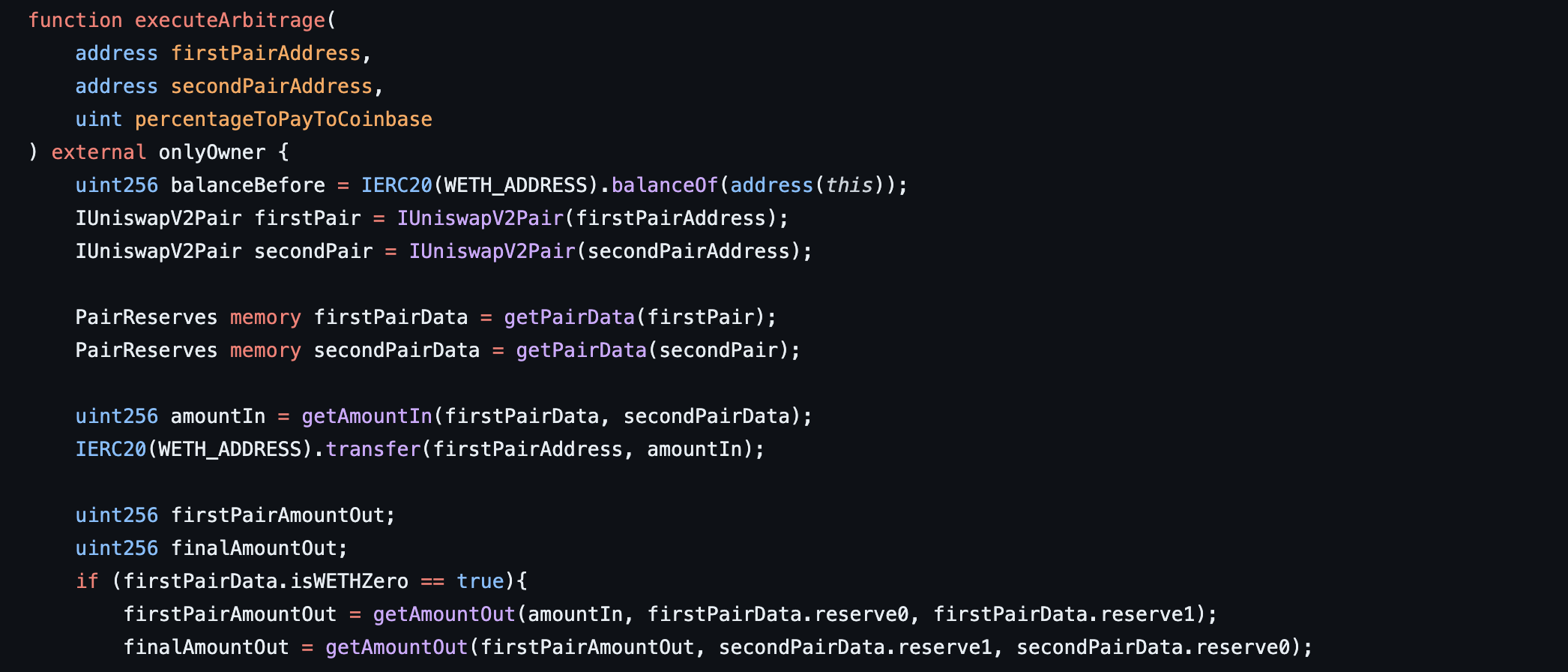MEV-Share is a new paradigm for searchers. It unlocks new orderflow, features, and searching strategies. This short guide will get you up to speed on new ways of searching and explain how to upgrade your strategies to leverage MEV-Share.

A collection of articles and papers from Flashbots.
MEV-Share is a new paradigm for searchers. It unlocks new orderflow, features, and searching strategies. This short guide will get you up to speed on new ways of searching and explain how to upgrade your strategies to leverage MEV-Share.

We are excited to announce that Flashbots is successfully running a block builder inside an SGX enclave, a trusted execution environment (TEE) developed by Intel. The SGX block builder is now live on the Ethereum Sepolia testnet, and soon on mainnet!

Our previous work on running Geth inside SGX demonstrated the technical feasibility of this approach. Now, we’ve made the next step towards block building inside encrypted enclaves, and want to share our key learnings and challenges, as well as the all the code and tooling for running a block builder inside SGX.
This article examines the use of secure multi-party computation in allowing searchers to backrun users’ transactions while preserving transaction and search strategy confidentiality.
At Flashbots, we are exploring trusted execution environments (TEEs) such as SGX, as well as other privacy technologies including Multi-Party Computation and Homomorphic Encryption, as important building blocks for trustless collaboration along the transaction supply chain. This is particularly relevant for applications such as decentralized block building and sharing private orderflow.
Today we are happy to publish our efforts and a number of key learnings about running Geth inside SGX, for others to reuse, experiment with, and build upon.
TLDR:
tl;dr
A competitive, geographically diverse, and transparent builder ecosystem is critical for the health of Ethereum. Flashbots has open sourced our leading builder in order to help this ecosystem grow further.
Competition among builders maximizes validators rewards and improves censorship resistance for users. With Suave, we envision an ecosystem of builders collaboratively building the most profitable block, each contributing a part of a block instead of one entity building the entire block. Open sourcing our builder will accelerate this future and promote competition in the market today.
We encourage all teams to develop their builders in the open, and for the community to only trust builders who act consistent with the norms of transparency and free software.
Join us in ensuring that Ethereum has a competitive ecosystem of builders and a healthy MEV ecosystem.
This post is adapted from Phil Daian’s talk on Oct 14, 2022 at Devcon VI in Bogota, Colombia. A transcript of the talk is available here.
Tl;dr: Flashbots exists to fight the centralizing impacts of MEV by producing open access and open source tools and lead the field of MEV research. We believe in a censorship resistant Ethereum and the way to protect it is through true decentralization and geographic diversity. In order to truly mitigate the negative externalities of MEV and maximize welfare, we need new tools that are built on the principles of privacy and decentralization. Flashbots is introducing SUAVE - the Single Unifying Auction for Value Expression, which will enable programmable privacy and fully decentralized block-building with maximal competition and geographic diversity. Please join us in building SUAVE to support the decentralized future. We want to hear from you, and we want to build with you!
Tl;dr The first article of this series outlined the threat that exclusive order flow (EOF) poses to the builder market. This article argues that order flow auctions can address part of the EOF problem and explores meaningful differences between two auction design types, while identifying similarities that point to a more fundamental problem.
Tl;dr This post explores the alarming potential for exclusive order flow to render the builder market uncompetitive. A lack of competition in the builder market threatens to cause rent extraction, poor user experience, and entrenchment of builders with undue influence over network incentives. While cause for concern, the negative externalities of exclusive order flow can be mitigated or wholly avoided as presented in a series of articles, of which this article is the first.